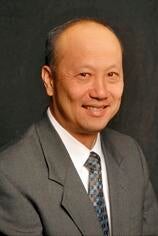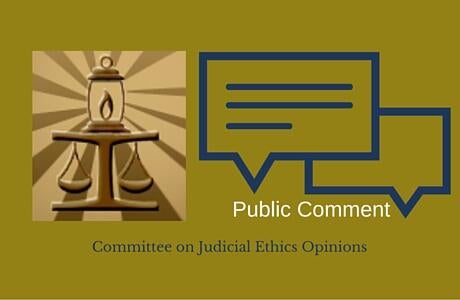Supreme Court Ethics Committee Recommends Precautions and Provides Guidance to Judges on Meeting with Vendors
SAN FRANCISCO—The California Supreme Court Committee on Judicial Ethics Opinions (CJEO) has adopted a formal opinion providing advice and guidance to judges about procurement, product and service research, and meetings with vendors under the California Code of Judicial Ethics.
In CJEO Formal Opinion 2017-009, the committee examines the ethical and administrative rules governing interactions with vendors and concludes that while meetings may be necessary for the diligent discharge of judicial duties, they must be done in a manner that is authorized by law and does not violate the California Code of Judicial Ethics.
 Judge Robert Trentacosta, Committee Member
|
"Judges meeting with vendors raises an array of ethical issues for judges and their courts. Central to these issues is that a judge may not advance the business interests of others, and courts must ensure fairness in public contracting. The committee has endeavored to provide comprehensive guidance for judges who are involved in procurement of goods and services for courts, including judges in specialty courts." |
Guidance
Judges considering meeting with vendors for the purpose of procuring court services are advised do so with the assistance of court administrative staff to ensure compliance with public contracting laws, guarantee impartiality, and avoid the appearance of improper use of judicial office to advance the pecuniary interests of the vendors.
Where reliance on court staff is unavailable or impractical, the committee advises that judges may meet directly with vendors so long as the judges have delegated authority from their presiding judge to do so and they take precautions to avoid the appearance of favoritism, conflicts of interest, improper use of judicial office, or business relationships with likely parties.
Judges considering meeting with vendors for the purpose of investigating services or products are advised to do so with the involvement of court administration and staff, but judges may meet directly with the vendors so long as recommended precautions are taken.
While judges in family and juvenile assignments are encouraged to investigate the availability of services for the parties in their courts, the canons do not permit them to meet directly with vendors to develop or promote services. Specialty court judges are nonetheless encouraged to support programs that serve children and families by leading community networks, which may independently meet with vendors to develop and promote private sector services without judicial participation.
Background
The committee previously invited the public to comment on this advisory opinion in draft form. The comments submitted with a waiver of confidentiality are posted for public view on the CJEO website. CJEO Formal Opinion 2017-009 contains modifications adopted by the committee after carefully considering the comments received.
CJEO is an independent committee appointed by the Supreme Court to help inform the judiciary and the public concerning judicial ethics topics. CJEO was established as part of the court’s constitutional responsibility to guide the conduct of judges and judicial candidates (Cal. Const., art. VI, § 18, subd. (m)). In making appointments to serve on CJEO, the court selects members of the bench with a strong background in judicial ethics and diverse courtroom experience. The current twelve CJEO members are justices, judges, a commissioner, and a retired bench officer who have served in courts of various sizes throughout the state.
CJEO publishes formal opinions, issues confidential informal opinions, and provides oral advice on proper judicial conduct pursuant to the California Code of Judicial Ethics and other authorities (Cal. Rules of Court, rule 9.80(e)(1)). CJEO acts independently of the Supreme Court, the Commission on Judicial Performance, the Judicial Council, and all other entities (rule 9.80(b)).




